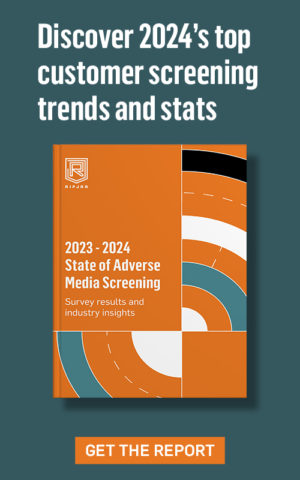The Financial Action Task Force (FATF) maintains a “black list” and “grey list” of countries that have “strategic deficiencies” in their anti-money laundering (AML) and counter-financing of terrorism (CFT) regimes.
Officially known as the High Risk Jurisdictions subject to a Call for Action, the FATF black list serves to alert financial service providers to the risks of doing business with certain countries, and to encourage the governments of those countries to take appropriate action to implement the FATF’s AML/CFT Recommendations. The FATF calls on member states to apply enhanced due diligence measures when dealing with customers from black list countries and to “apply counter-measures to protect the international financial system from the money laundering, terrorist financing, and proliferation financing (ML/TF/PF) risks” that they pose.
In addition to the black list, the FATF maintains a “grey list”, referred to as Jurisdictions under Increased Monitoring. Like the black list, the grey list sets out countries that have strategic AML/CFT deficiencies, but that are cooperating with the FATF by working through an action plan to address them expeditiously.
While inclusion on the grey list denotes an elevated level of AML/CFT risk, the FATF does not advise enhanced due diligence (EDD) when dealing with designated countries. However, in the UK and EU it is a legal requirement to apply EDD when customers are based in High Risk Third Countries or if transactions involve those countries. In the UK, HMT’s list of High Risk Third Countries is the FATF grey list. In the EU, the European Commission also largely bases its list on the grey list.
As the FATF conducts its periodic reviews and Mutual Evaluation Reports (MER), countries may be added to, and withdrawn from, the black and grey lists depending on the progress (or lack thereof) that they have made in addressing relevant issues. In October 2022, following a Plenary session, the FATF updated its black list and grey list to reflect the new global AML/CFT risk landscape. In order to remain compliant with domestic AML/CFT regulations, and to avoid potential criminal risks, financial services providers and other obligated entities should be familiar with the updated lists, and understand how to achieve compliance when dealing with customers from designated countries.
Recent changes to the FATF black list
Myanmar
In February 2020, Myanmar committed to an FATF action plan to address strategic deficiencies in its AML/CFT infrastructure. That plan expired in September 2021 and, after noting a “continued lack of progress” in addressing AML/CFT issues, the FATF added Mynamar to its Jurisdictions under Increased Monitoring in October 2022.
The FATF has identified key measures that Myanmar must implement in order to be removed from the black list. These include:
- Demonstrating an improved understanding of key money laundering risks
- Implementing risk-based on-site and off-site inspections
- Demonstrating enhanced use of financial intelligence in money laundering investigations
- Ensuring that money laundering is investigated and prosecuted in line with its risks
- Demonstrating international cooperation in the investigation of transnational money laundering cases
- Increasing the seizure of the proceeds of crime, and managing the seized assets to preserve their value prior to confiscation
- Implementing targeted financial sanctions to combat weapons proliferation financing
Myanmar joins two other countries on the black list:
- Democratic People’s Republic of Korea
- Iran
Recent changes to the FATF grey list
The FATF has recently added the following countries to its Jurisdictions under Increased Monitoring:
United Arab Emirates: In a 2022 Plenary and Working Group Meeting, the FATF noted that the UAE had made progress in addressing its money laundering and terrorism financing risk. However, it also noted that more work was required to improve the country’s money laundering investigations and prosecutions, and so added the UAE to the grey list in October 2022.
Democratic Republic of the Congo: Following insufficient progress implementing the recommendations on its 2021 Mutual Evaluation Report (MER), the FATF added the DRC to the grey list in October 2022.
Mozambique: While Mozambique made a political commitment to improve its AML/CFT deficiencies, the FATF noted that it had not made sufficient progress, and added it to the grey list in October 2022.
Tanzania: Like Mozambique, the FATF noted that Tanzania had made improvements to its AML/CFT infrastructure following its 2021 MER, but had not made sufficient progress in addressing key points in its action plan. Tanzania was added to the grey list in October 2022.
In December 2022, the FATF’s list of Jurisdictions under Increased Monitoring included the following countries:
- Albania
- Barbados
- Burkina Faso
- Cambodia
- Cayman Islands
- Democratic Republic of the Congo
- Gibraltar
- Haiti
- Jamaica
- Jordan
- Mali
- Morocco
- Mozambique
- Panama
- Philippines
- Senegal
- South Sudan
- Syria
- Tanzania
- Turkey
- Uganda
- United Arab Emirates
- Yemen
How to comply with black list and grey list changes
Countries on the FATF black list and grey list present a high risk of money laundering, and firms should exercise extreme caution when doing business with companies within those jurisdictions. While all transactions involving black list countries require firms to implement enhanced due diligence measures, firms should also treat grey list countries with a high degree of caution due to the elevated risk of financial crime.
With this in mind, firms should review their compliance solutions to ensure that they are effectively applying the FATF AML/CFT recommendations. This means conducting risk assessments of each customer and then applying compliance measures, including ongoing screening and monitoring, that are commensurate with the risk profile that those customers present.
In order to establish an accurate risk profile, however, it will be necessary to collect and analyse a vast amount of customer data, drawn from a range of information sources, including internal due diligence, watchlists, sanction lists, politically exposed person lists, and international media. Ripjar’s Labyrinth Screening platform has been developed for exactly this purpose: Labyrinth enables firms to screen customers in real time against thousands of data sources, including sanctions and watchlists, and foreign media sources in over 20 languages. Integrating cutting-edge machine learning technology, Labyrinth is designed to help you adapt quickly to a changing risk landscape, including updates to the FATF black and grey lists, by seamlessly blending structured and unstructured data to generate actionable compliance intelligence.









